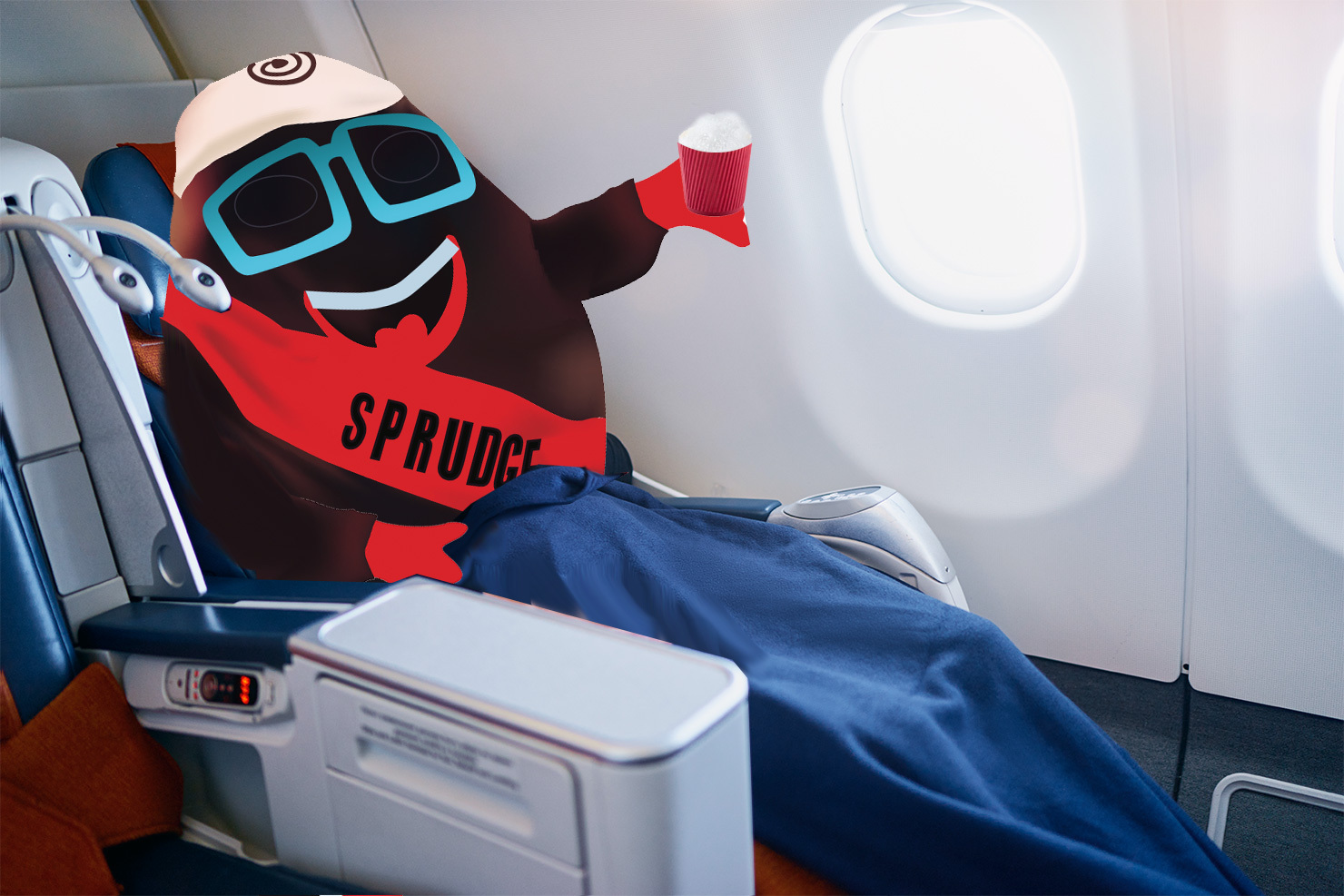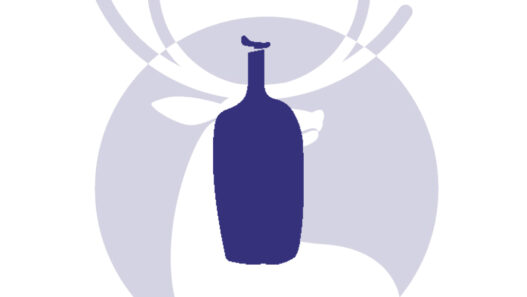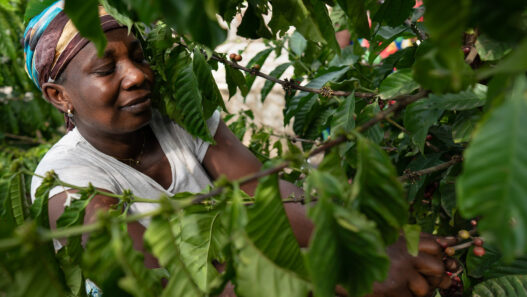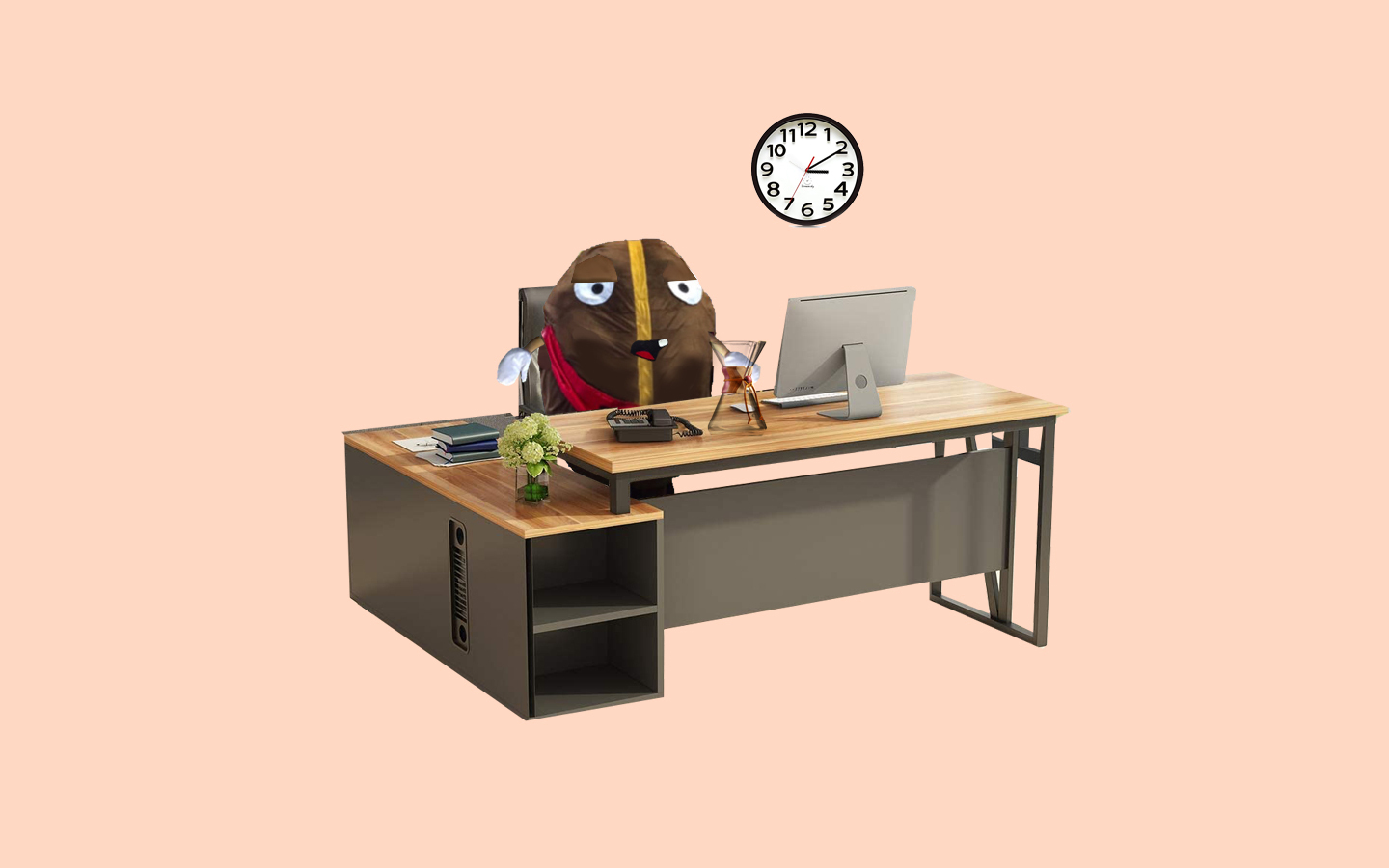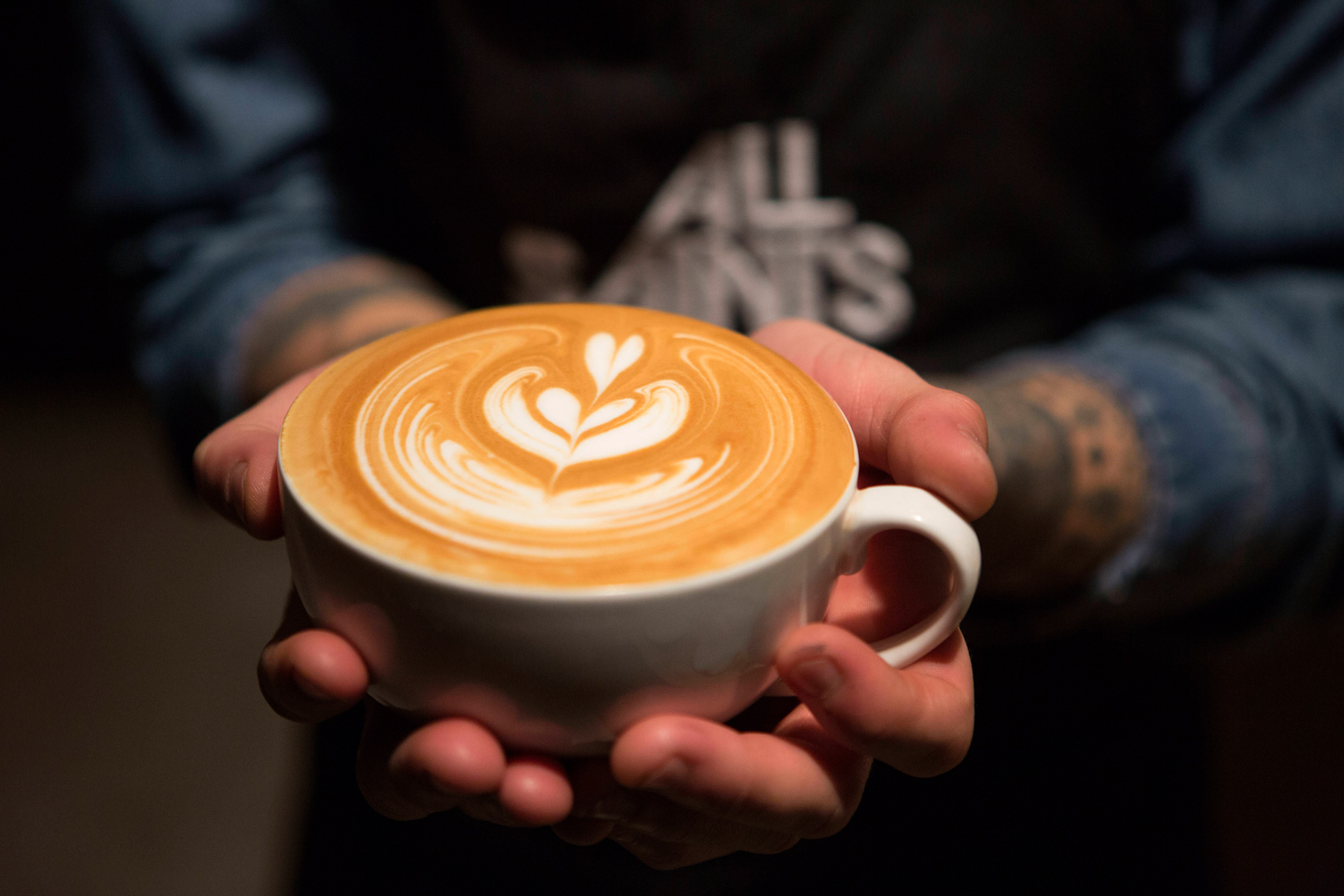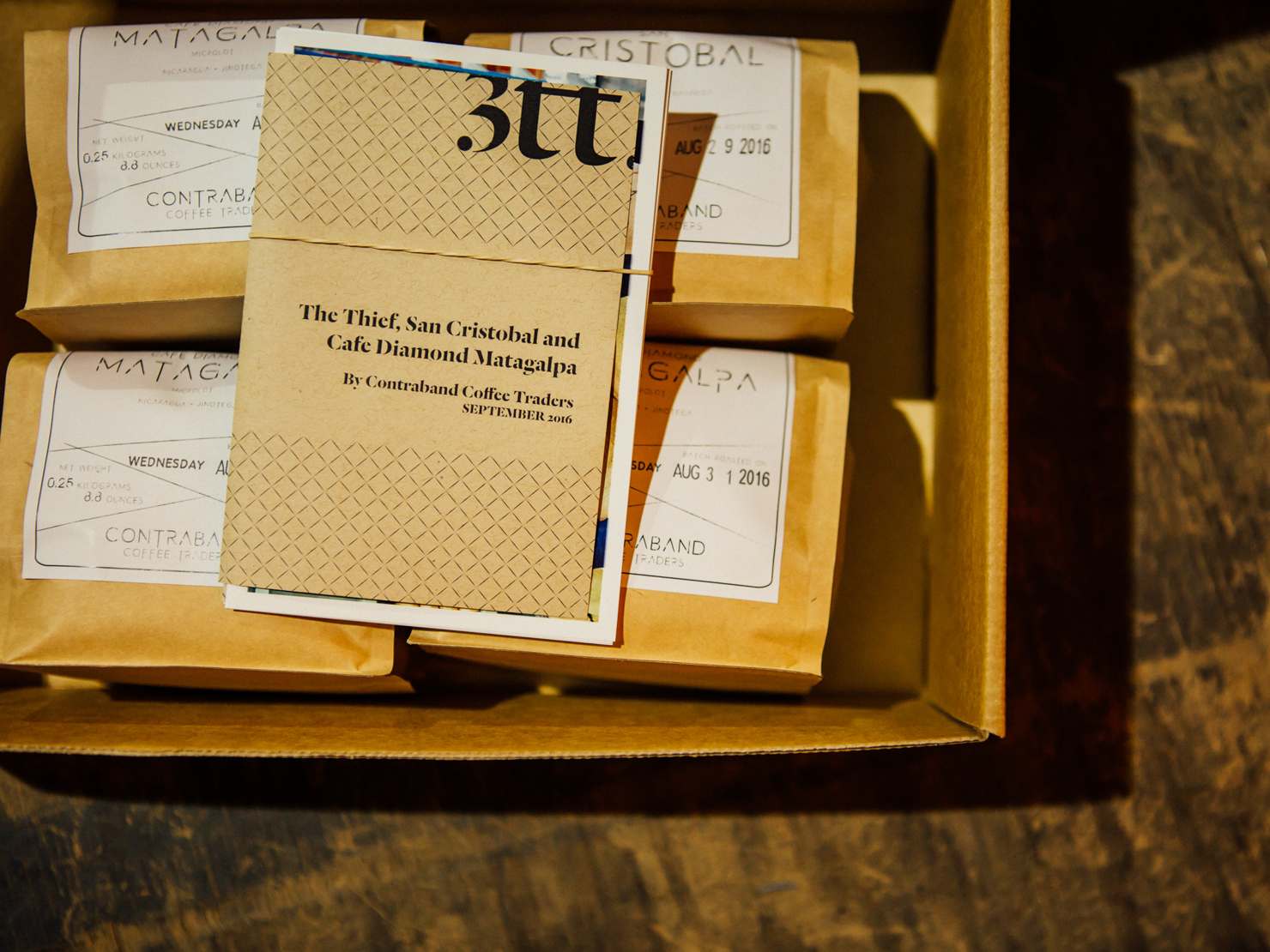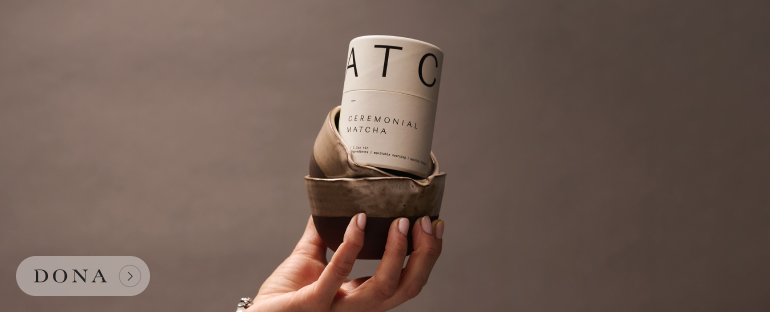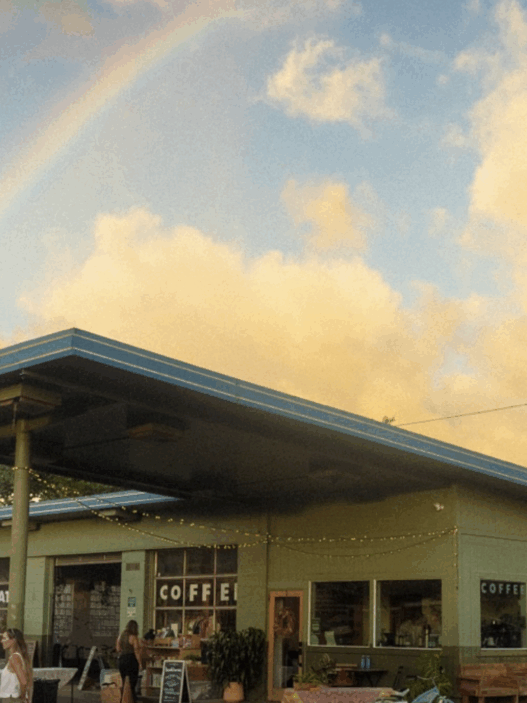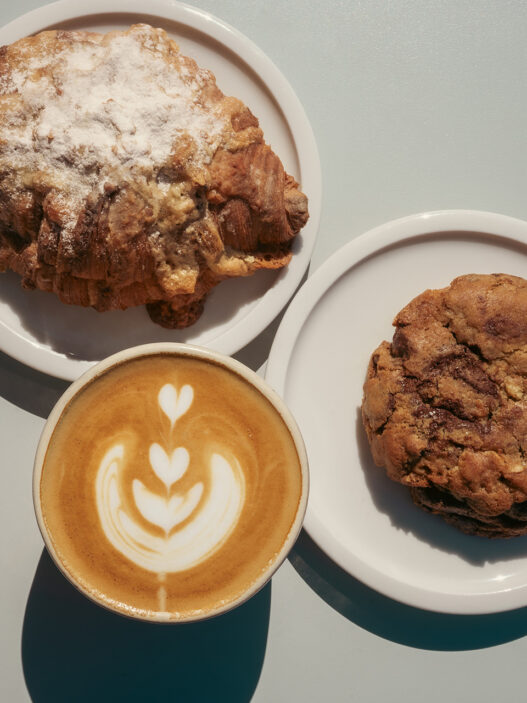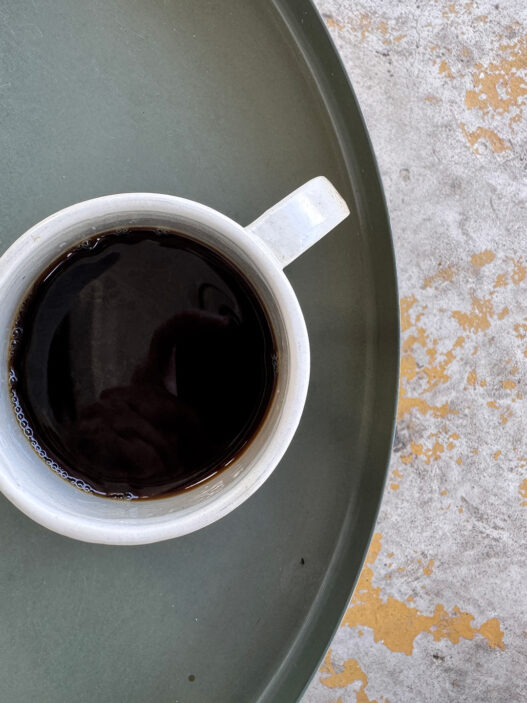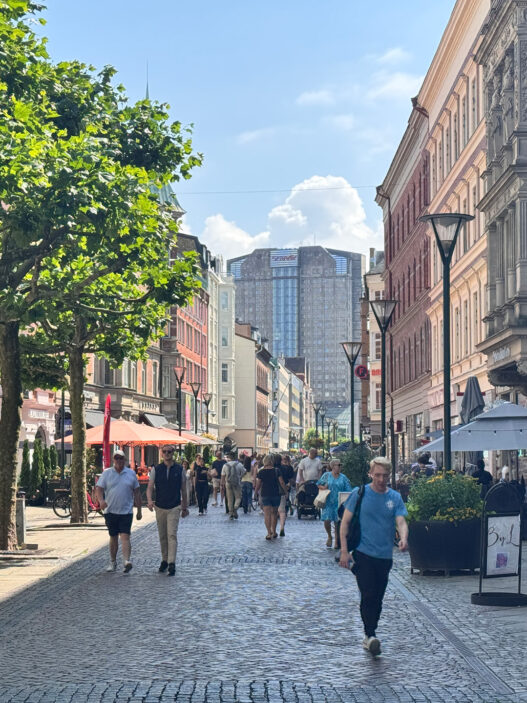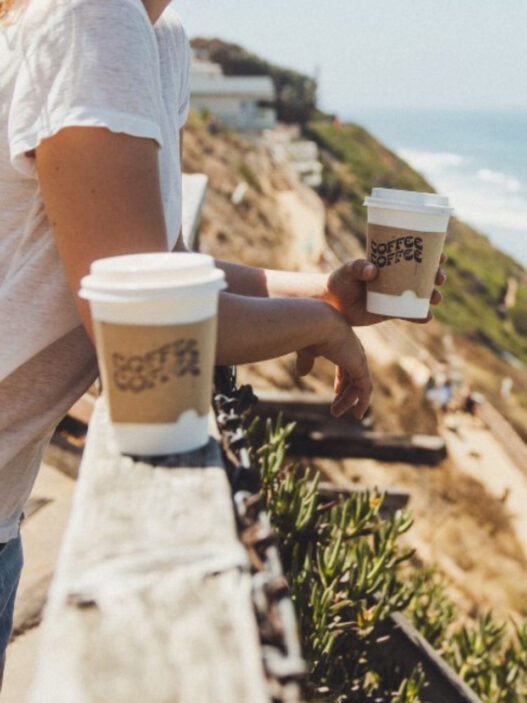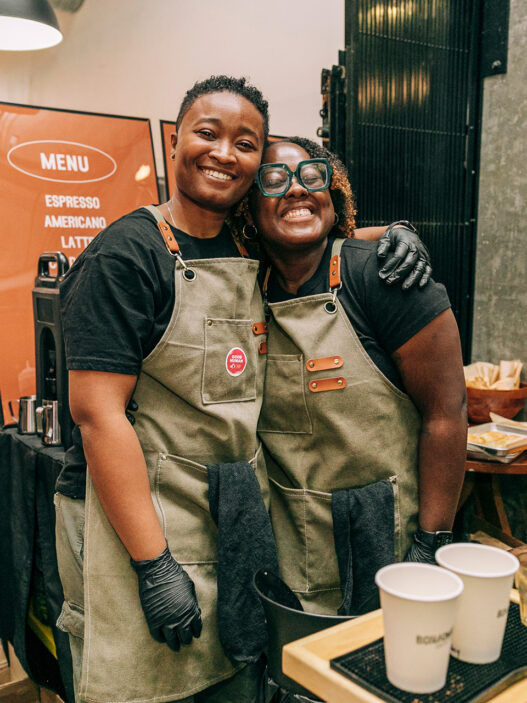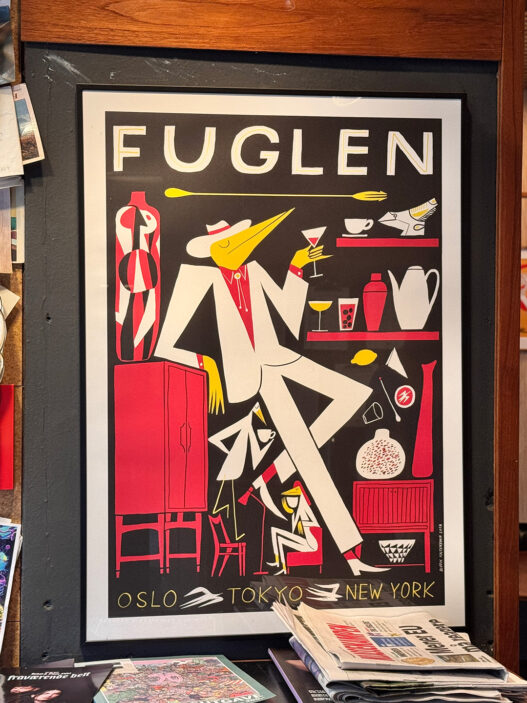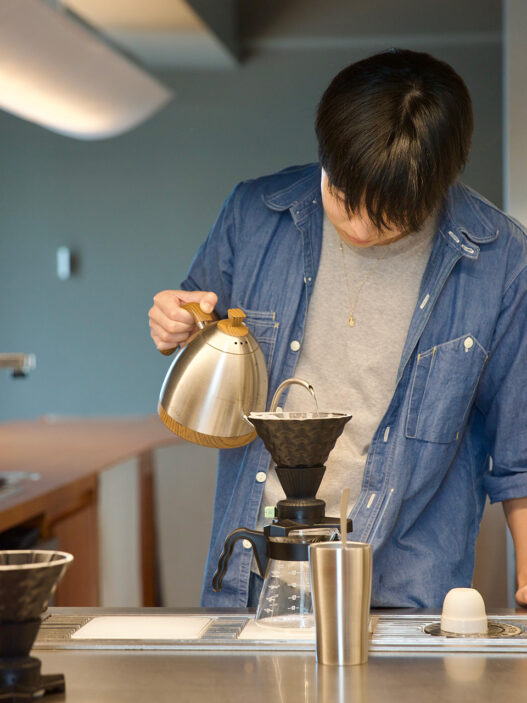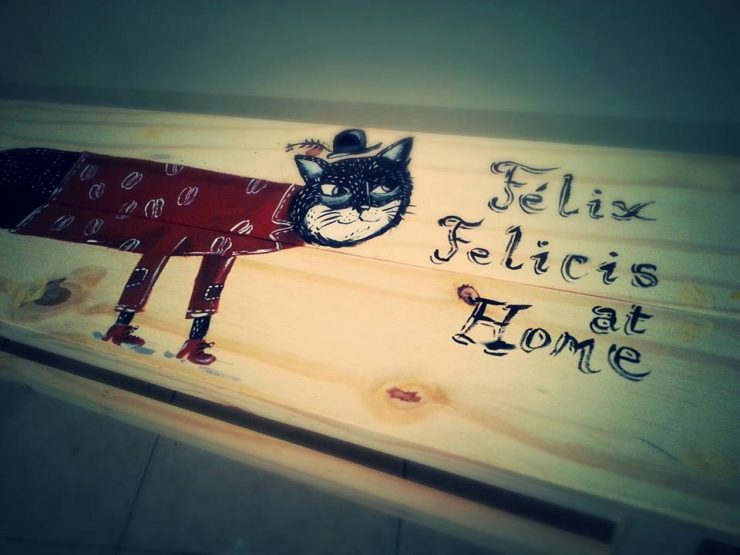
Buenos Aires is a city of surprises. For starters, did you know the charming capital of Argentina has more bookstores per person than any other city in the world? In the collective imagination of Buenos Aires, the old cafes are an oasis where the Porteños love flipping through books and drinking a cortado. This is a romantic place, with coffee bars set beneath a canopy of bluish purple flowers from the Jacaranda trees. Some of these coffee shops are a hundred years old or more and were once haunts of Argentinian icons such as writer Jorge Luis Borges and tango singer Carlos Gardel.
It may be no shock to learn that the beverages in these classic cafes are a bit stuck in the past, and almost beside the point—like the historic cafes of Vienna or the kissaten of Tokyo, these spaces are not modeled off of new wave coffee standards. But on a recent trip to Buenos Aires, I discovered—surprise—a new generation of baristas and roasters willing to challenge the status quo and bring coffee in this city up to a new set of standards. The irresistible beat of delicious coffee is dancing a tango through the streets of Buenos Aires—here are seven places to start your trip.
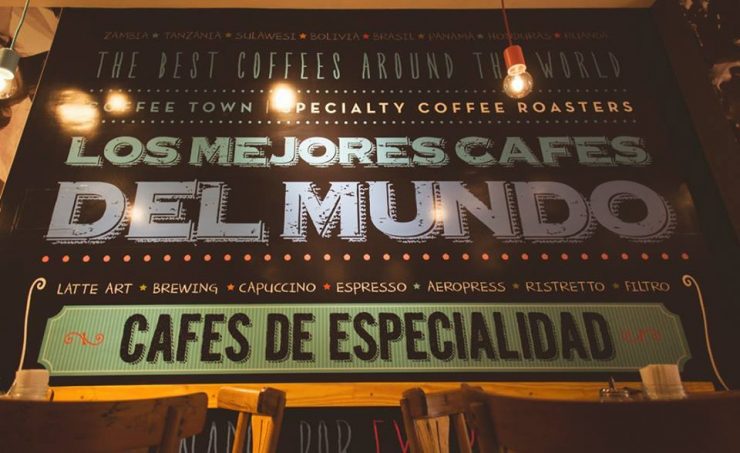
Coffee Town
Inside San Telmo’s market, located in the old San Telmo neighborhood, one can find antique pieces of crockery and cutlery, vintage toys, fruit, fish, and a range of spices alongside rare Patagonian products. And behold, wonder of wonders, this market boasts an excellent coffee bar that roasts its own coffee. Coffee Town is considered a pioneer of specialty coffee in Argentina, and their menu of coffees—from South America and Africa—has helped drive interest from a city far better known for its bevy of fine wine lists.
Coffee Town was founded by José Vales, a former journalist who got involved with the coffee world 10 years ago after traveling through Central America. He took courses in Colombia, Guatemala, and Brazil before founding a coffee academy back in Buenos Aires in 2010. Vales opened this Coffee Town location in the San Telmo market in 2012. “In the early times,” he tells me, “the customers were surprised with the taste of my coffees, they asked me what that was.” It’s a story heard all around the world, as a new outlook on coffee slowly earns favor with the local audience. Coffee Town has been a huge part of that story, and they even boast a national champion, Augustina Román, who represented Argentina at the 2013 World Barista Championship.
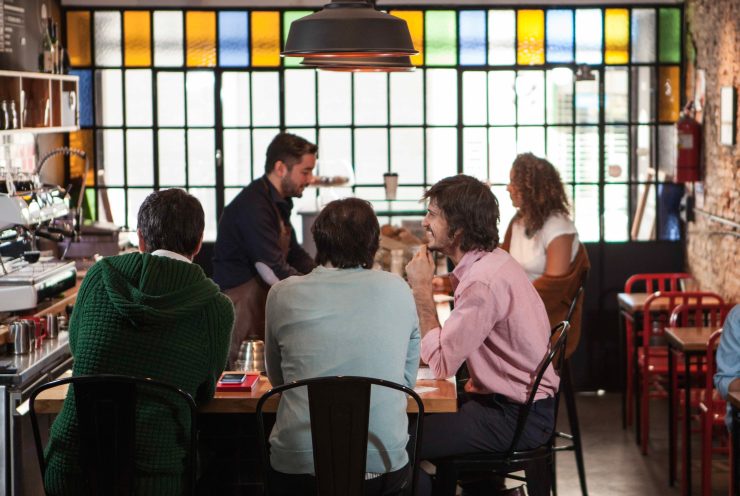
Negro Cueva de Café
Located in Micro-Centro (Downtown), Negro Cueva de Café is one of the city’s newest coffee shops, and has been operating for less than one year. This is a small space wedged into a commercial area, offering fine coffees to groups of businessmen and tourists visiting Calle Florida and Galerias Pacifico, two of the city’s more famous shopping areas. “We chose to place our coffee shop at the Micro-Centro because it is an area where many people are in transit, and most of them don’t know or didn’t have the opportunity to be in touch with specialty coffees until now,” says Maria Conte, the shop’s co-founder, who offers a wide range of cakes and toasts to accompany her espressos and brewed coffees.
Conte and Fernando Lozano opened Negro Cueva de Café about a year ago, with coffee beans roasted by Café Puerto Blest, a microroastery co-founded by Agustin Quiroga, Barista Champion of Argentina in 2009 and 2011. Quiroga provides beans and develops personal profiles for several coffee shops. Quiroga has been working in the coffee business since 2002, and is one of the well-known faces leading this little coffee revolution in Buenos Aires.
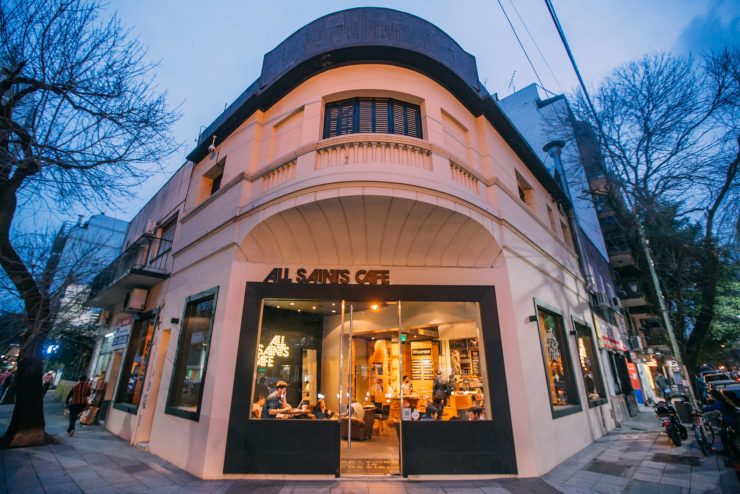
All Saints Cafe
Belgrano is an upscale neighborhood located in the north of Buenos Aires, and home to All Saints Cafe, founded in 2014 by Sebastian Freidzon, his American wife Taylor Freidzon, and his brother Ezequiel Freidzon. All Saints is a roaster, and on my visit I discovered a Colombian espresso blend alongside filter offerings from Brazil’s Fazenda O’Coffee, a São Paulo estate. “My dream of having my own coffee business came up four years ago,” says Sebastian Freidzon. “My wife, Taylor, is from Oklahoma, and we lived in Tulsa for four years, where I studied international business. The coffee scene there taught us how great coffee could be and that really inspired us.” The Freidzons learned to roast with Maria Esther López, a former Venezuelan lawyer turned coffee professional. Lopez is a Specialty Coffee Association of Europe and Specialty Coffee Association of America certified instructor living in Buenos Aires, whose own hotly anticipated coffee bar will open soon.
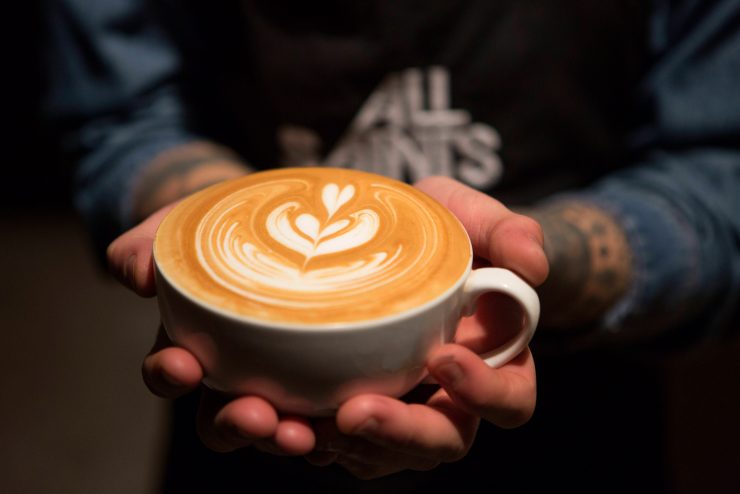
All Saints has a laid back atmosphere, different from the classical cafe of Buenos Aires. In two short years this place has earned a strong neighborhood identity, with coffee leading the way alongside a solid offering including daily full breakfasts, a nice selection of teas, chocolate muffins, brownies, and tasty donuts.
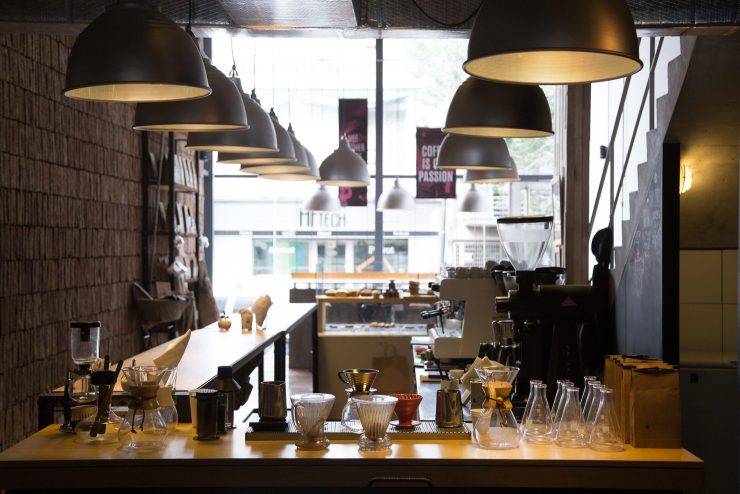
Lab Tostadores de Café
You can’t speak of Buenos Aires without talking about Palermo. The largest neighborhood of the city, Palermo has become a hub for film producers and the entertainment industry—locally they call it “Palermo Hollywood”. With entertainment types comes a need for good coffee, and so in 2014, entrepreneur Alexis Zagdañski brought good coffee to this hip spot. Located in a calm street beside a train line, Lab Tostadores de Café also works as a laboratory where Zagdañski runs and operates a Diedrich IR12 roaster and promotes cupping sessions and coffee education courses.
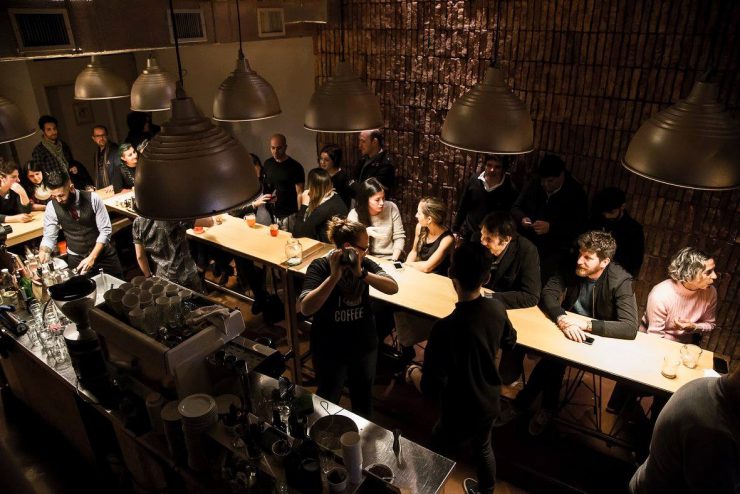
The coffee bar is led by Brazilian barista Annete Alves, formerly of Sofá Café and Coffee Lab, brewing up a wide variety of coffees from Africa, Brazil, and Central America. They pull espresso-based coffee drinks and filter coffees via Hario V60, Kalita, Chemex, and AeroPress. “I’m trying to bring a profile with acidity and fresh fruity notes,” says Zagdañski, who draws inspirations from many different progressive roasters and cafes around the world, and took time to pay his dues here in Palermo, diligently roasting for two years before opening up the coffee shop.
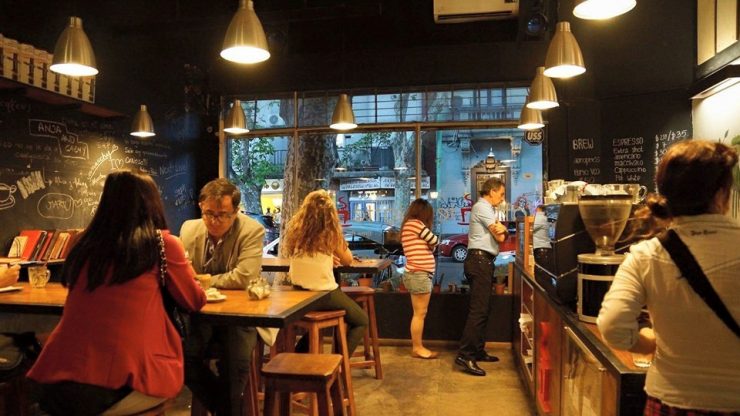
Café Lattente
The next cafe I hit up was Café Lattente, in Palermo Soho, where I also found coffees roasted by Lab Tostadores de Café. This neighborhood is experiencing a boom right now, and is considered one of the more hip spots in Buenos Aires, full of bookstores, bars, restaurants, and now a couple of new coffee shops. Cafe Lattente opened six long years ago, founded by a guy from Colombia—Daniel Cifuentes, the 2012 Argentine Barista Champion—and his business partner Zehan Nurhadzar, who was born in Indonesia and has been living in Buenos Aires since 2009. This is a small and warm refuge with seats on the sidewalk, where chic patrons sip on lattes and cappuccinos while munching the shop’s popular handmade cookies.
Cifuentes takes his pedigree as a barista champion seriously. “We always have an eye on quality,” he tells me, “focusing at first on coffee, the staff, and then the customers whom we are open to transfer our knowledge and to hearing what they have to say about our job.” This dedication to quality is evident in the coffees served at Lattente; perhaps this cafe is why the neighborhood is becoming so cool.
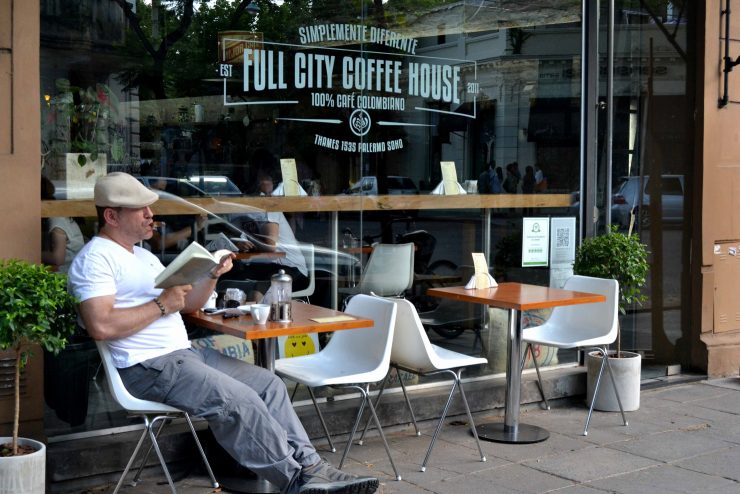
Full City Coffee House
Three blocks away and still in Palermo Soho, I found myself at Full City Coffee House, another Colombian-run cafe. My eye catches a sign with a slogan: 100% Colombian coffee. The founders are Victoria Angarita and Allan Dorgan, and their story is similar to so many ex-pats who call this city home. “Seven years ago I decided to visit Buenos Aires as a tourist, and I am here until today,” Dorgan says.
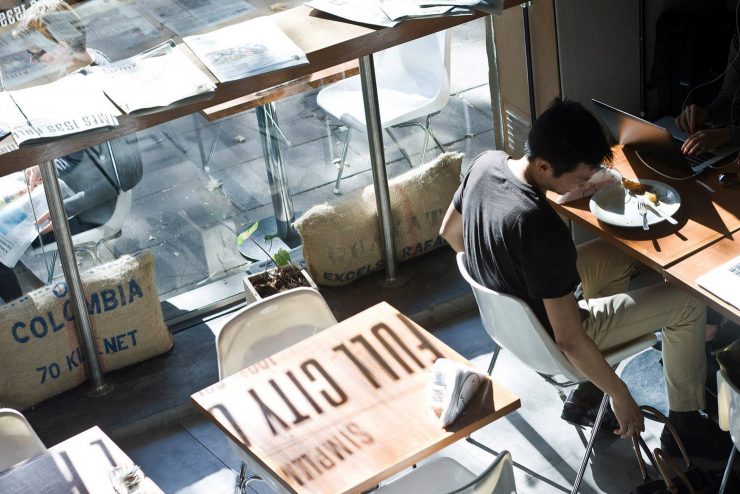
Full City roasts all their own coffee, and yes, 100% of it comes from Colombia. Angarita is daughter of Parmenio Angarita, founder and director of Educafes, a barista school in Colombia. The name of the shop holds true to their roasting style—this means “pretty dark” if you aren’t familiar with roast charts—which means they’re offering something much closer to the traditional Argentinian standard, albeit with high-quality coffee. Besides coffee is breakfast and lunch, including an artisanal burger by Dorgan with real Argentine beef. The couple keep a loyalty to the coffees of their country and they’re optimistic about coffee’s future here, telling me that someday it could even be as popular as wine and meat.
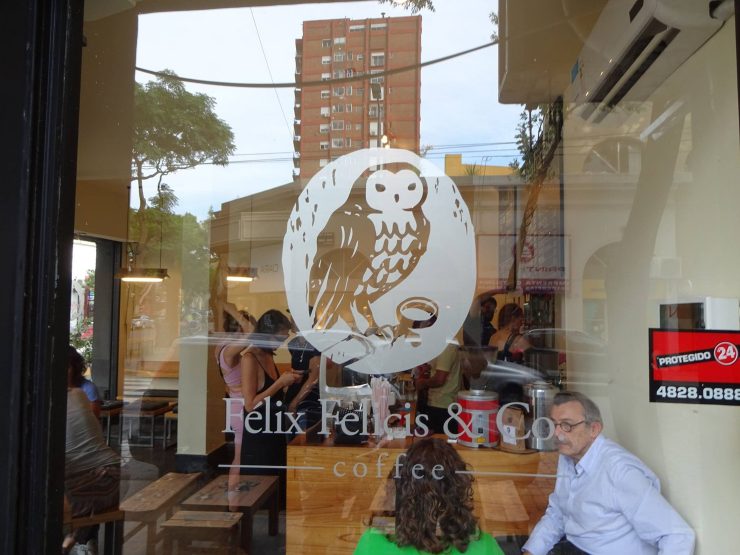
Félix Felicis & Company
I’ll wrap up this guide with one more spot in Palermo Soho, Félix Felicis & Company. Barista and co-founder Natalia Montoya is a Harry Potter lover with an owl tattooed on her arm; the very same owl decorates the entrance of her cafe. Open since early 2015, the shop’s genesis speaks volumes about the growing Buenos Aires coffee scene. “The idea came up when I worked in Lattente and I met Marcelo Ferrán, who was our costumer,” Montoya tells me. “We became friends and decided to open a coffee shop alongside two other partners, Pat Hryb and Juan Pablo Valencia. It was a smooth transition and we even use a blend Satisfacción,” Lattente’s signature coffee roasted for them by Lab.
This kind of next-generation development—a barista at a good cafe meets some investors and strikes out on her own—is a very good sign for the growth and maturation of the Buenos Aires coffee scene, because it means it’s getting bigger, providing more opportunities for young people and widening the pool of coffee lovers along the way. You see this kind of development happening in every coffee city in the world, and now it’s happening here.
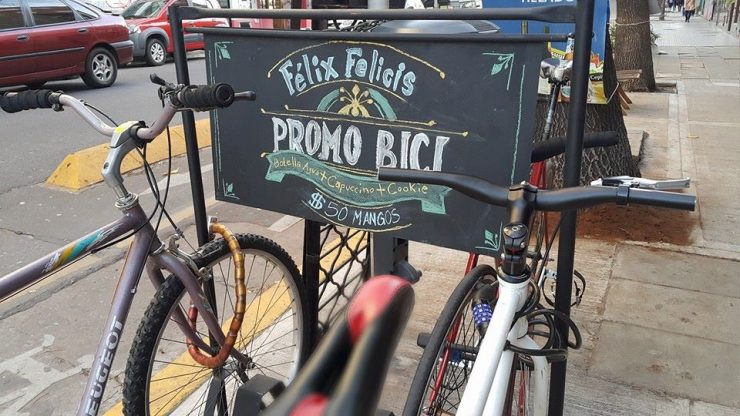
Bigger meaning aside, Félix Felicis & Company is located in a cool corner of this fashionable neighborhood, and offers some of the city’s very best people watching. Montoya and her team even offer a friendly discount to those who arrive to the cafe by bike, so if you rent one while you’re here in town make sure to put this on your must-see list.
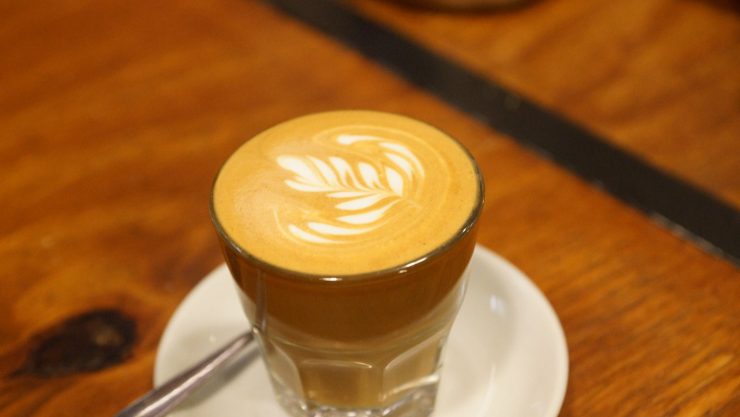
Paulo Pedroso is a regular contributor to Brazilian newspapers Folha de São Paulo and Valor Econômico, as well as Revista Espresso, a Brazilian specialty coffee magazine. Read more Paulo Pedroso on Sprudge.



